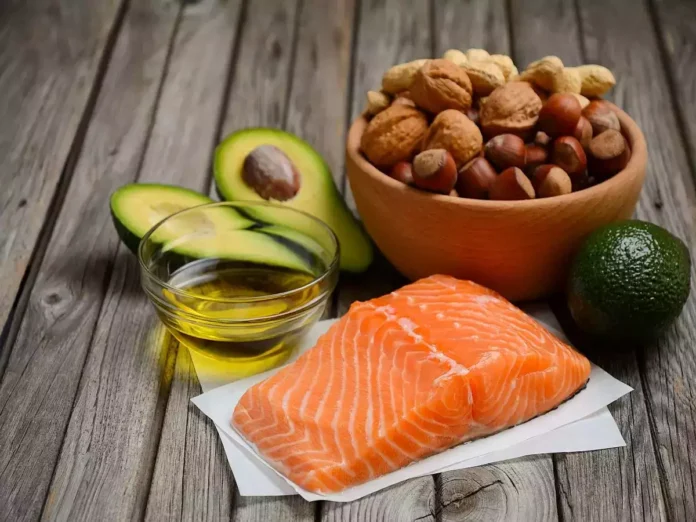Researchers at UVA Health showed that greater plasma omega-3 fatty acid levels improve lung function and extend transplant-free life. Omega-3 fatty acids may be a targetable risk factor for pulmonary fibrosis, a global issue.
Researchers have tried to find an answer to the question: Can healthy fats in nuts and fish slow pulmonary fibrosis and delay lung transplants? UVA researchers evaluated how omega-3 fatty acids, heart-healthy fats found in salmon and flaxseeds, affect pulmonary fibrosis progression and transplant wait times.
Researchers observed that omega-3s improved lung function and transplant-free longevity.
The researchers recommend clinical studies of omega-3-boosting therapies for pulmonary fibrosis and other chronic lung disorders.
“We found that higher blood levels of omega-3 fatty acids, which reflect several weeks of diet, were linked to better lung function and longer survival,” said UVA Health and UVA School of Medicine pulmonary and critical care expert John Kim, MD. “Our findings suggest omega-3 fatty acids might be a targetable risk factor in pulmonary fibrosis.”
Omega-3s have several health benefits. Studies show they may lessen the risk of heart disease, stroke-causing blood clots, breast cancer, other cancers, Alzheimer’s, and dementia.
Kim and his colleagues wanted to see if omega-3s may prevent interstitial lung disease, which can lead to pulmonary fibrosis. An irreversible disease that affects oxygen and carbon dioxide exchange, pulmonary fibrosis is global. This can cause shortness of breath, weakness, and incapacity to exercise. Smoking raises danger.
Interstitial lung disease patients’ anonymized Pulmonary Fibrosis Foundation Registry, UVA Health, and University of Chicago data were evaluated.
Over 300 interstitial lung disease patients were studied. Interstitial lung disease “idiopathic” pulmonary fibrosis is more common in men.
Higher plasma omega-3 fatty acid levels increased carbon dioxide exchange and lung transplant failure survival. This took place regardless of smoking or cardiovascular illness.
“Higher levels of omega-3 fatty acids were predictive of better clinical outcomes in pulmonary fibrosis,” Kim said. “These findings were consistent with whether you had a history of cardiovascular disease, which suggests this may be specific to pulmonary fibrosis.”
Experts recommend more research on omega-3s’ protective effects. To determine if omega-3 fatty acid drugs or diet changes improve patient outcomes, they urge more clinical trials and mechanistic studies.
“We need further research to determine if there are specific omega-3 fatty acids that may be beneficial and, if so, what are their underlying mechanisms,” said Kim. “Similar to other chronic diseases, we hope to determine whether nutrition related interventions can have a positive impact on pulmonary fibrosis.”
Conclusion
UVA Health found that omega-3 fatty acids in salmon and flaxseeds may decrease pulmonary fibrosis, a potentially lethal lung scarring disorder. The study indicated that omega-3 fatty acids increased lung function and transplant-free lifespan. . This suggests research trials to see if omega-3-boosting drugs assist pulmonary fibrosis and other chronic lung disorders.
The 300 interstitial lung disease patients were mostly men with “idiopathic” pulmonary fibrosis. Plasma omega-3 fatty acid levels indicated better lung function and longer survival without a lung transplant. The researchers suggest studying omega-3s’ protective effects and whether nutrition-related medicines enhance pulmonary fibrosis.



